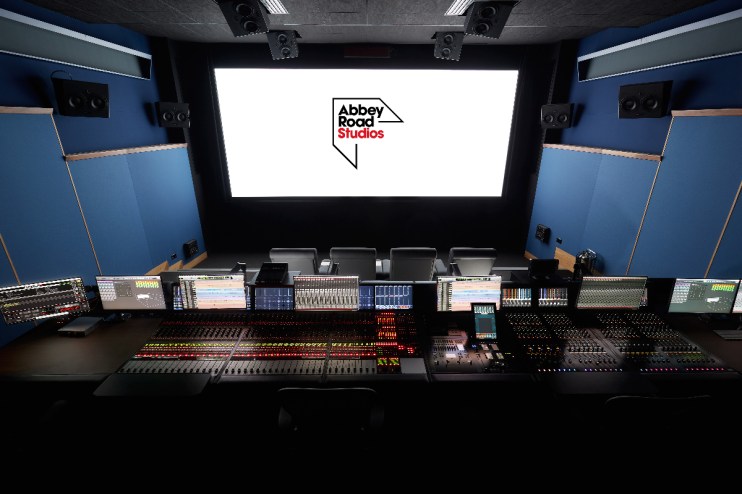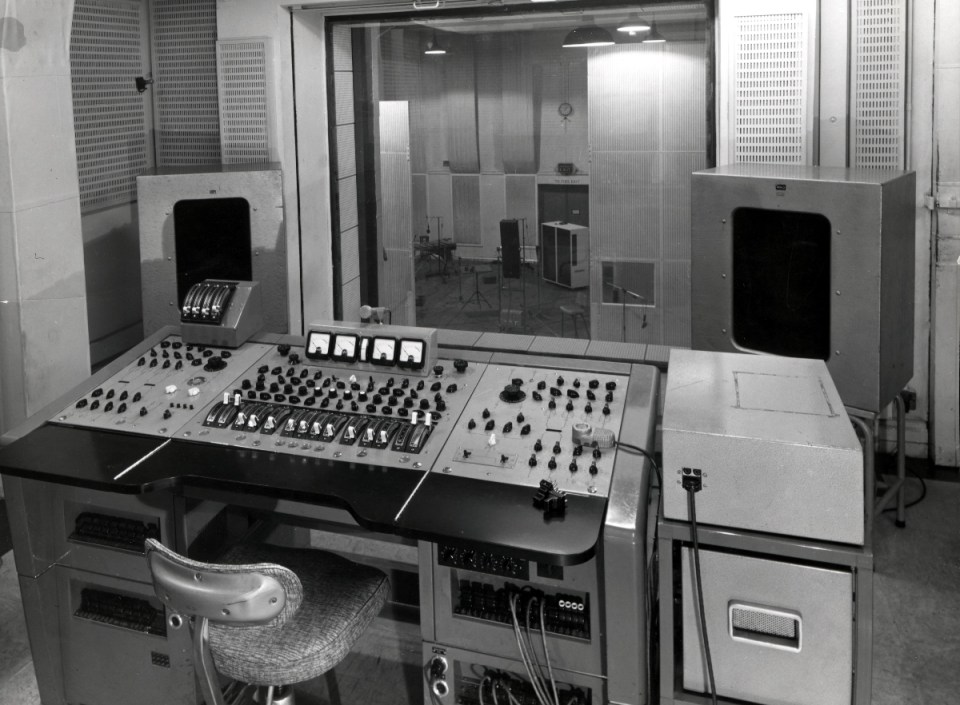Abbey Road Studios is looking for the next Spotify

When The Beatles recorded 190 of their 210 songs at Abbey Road Studios in west London, they pushed the boundaries of the primitive equipment at the time
They experimented using tape machines in ways they weren’t designed for, pulling all-nighters to create the iconic distorted sounds of tracks like “Revolution”.

It was a revolution not just in music, but in the possibilities for recording studios both then and now.
“It’s almost like the studio became an instrument in its own right,” said Mirek Stiles, head of audio products at Abbey Road.
This pioneering spirit has always been at the heart of Abbey Road. The studios were originally built as part of EMI’s Old Vinyl Factory, complete with bespoke recording equipment made just for them.
But by the 1980s, as the in-house production of gear started to fade, so too did innovation.
Abbey Road Red
In a bid to bring this back to Abbey Road, in 2016 the studios birthed a music tech incubator, now known as Abbey Road Red.
“It dawned on us that there actually wasn’t an incubator focused purely on music tech at the time in Europe. So we thought, ‘let’s do it'”, said Stiles.
The incubator takes equity in early-stage music start-ups in exchange for providing marketing, mentorship and support with everything from intellectual property law to business development. It has since helped over 20 start-ups develop technologies across the entire music value chain.
It has already proved to be a huge success. With a number of successful exits, including one start-up acquired by a major tech company. Other ventures have completed large funding rounds, such as Audoo, which has raised over £15m to date.

Although the programme scouts globally for the next Spotify or Soundcloud, “London is special,” according to Karim Fanous, innovation manager at Abbey Road. He believes the capital has been “a core point for the growth of music tech”.
Abbey Road Red also introduces start-ups to its extensive network of investors.
Though it’s traditionally been hard to raise money in the music space, things are changing amid increasing interest from artists and high net worth individuals, and as some music tech start-ups are proving to be highly lucrative with relatively minor investments.
“Cap tables tend not to be as crowded with music tech start-ups so you can realise a lot of value with a smaller investment over time,” Fanous explained.
Growing the UK’s music tech scene
Beyond its own incubator, Abbey Road has teamed up with BRIT Awards owner, the British Phonographic Industry (BPI), and London & Partners to launch Grow Music, a 12-week programme aimed at supporting scale-ups and start-ups within the UK music industry.
The first cohort, announced last month, includes 28 companies from across London, the east and south east of England.
These businesses, which include the likes of Setmixer and Volumetric Video, are all focused on reinventing the way music is created, performed, or consumed.
Abbey Road’s REDD Desks – mixing consoles designed by EMI engineers in the ’50s and ’60s – are still iconic, but the studio sees the tools it is creating now as potentially even more exciting, as they’ll inform the future business of music making.
“We’re not only a studio that’s open for the best artists in the world to record in,” Fanous added, “but we’re also a studio that’s pushing the boundaries of what’s possible in music-making today. It’s about taking all that knowledge and history and pushing it forward into the future.”
Abbey Road is still used today by artists from Taylor Swift to Noel Gallagher, as well as for major blockbuster productions.
Artificial intelligence
In the mid-1980s when MIDI technology that connects synthesizers, samplers and computers arrived, some thought it would replace musicians. It eventually just became a standard in music production.
Stiles drew parallels with today’s concerns around artificial intelligence (AI), and he sees AI as “another augmentative tool to the creative process, not something to be feared.”

But AI still comes with challenges. The music industry has been cracking down on the use of its work to train AI models without consent, credit or compensation.
Recently, a group of 20 companies, including Sony and Universal, launched a platform designed to protect intellectual property and ensure tech companies follow ethical practices.
Abbey Road said it has already seen some interesting uses of AI but Fanous made it clear the studios is “very very careful” with artists rights and training because “it’s absolutely vital to get that piece right.”